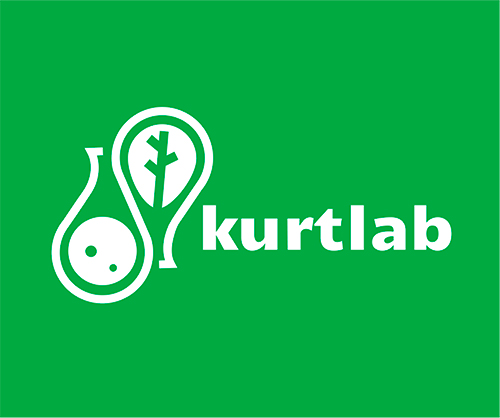Peer-reviewed journal papers
Kurt, Z.* , Ozdemir I and A. James. Effectiveness of microplastics removal in wastewater
treatment plants: A critical analysis of wastewater treatment processes, Journal of
Environmental Chemical Engineering, 2022,107831.
https://www.sciencedirect.com/science/article/abs/pii/S2213343722007047
Altay, M. B., Kalıpçıo ğ lu, C and Z. Kurt. Comparative Life Cycle Assessment of Uranium Recovery from Brine, Resources, Conservation and Recycling, 2022, 181, 106237.
https://www.sciencedirect.com/science/article/abs/pii/S0921344922000854
Z. Kurt. “Sustainable Remediation of Atrazine in Agricultural Fields by Reusing
Contaminated Water for Irrigation”, Sakarya Universitesi Muhendislik Fakultesi Bilim
Dergisi, 2022, 26, 1, 136-148. (as a tenure track requirement)
http://www.saujs.sakarya.edu.tr/en/pub/issue/67934/955012
Dávila-Santiago, L., DeLeon-Rodriguez, N., LaSanta-Pagán, K., Hatt, J. K., Kurt, Z.,
Massol-Deyá, A., & Konstantinidis, K. T. Microbial diversity in a military impacted lagoon
(Vieques, Puerto Rico) and description of “Candidatus Biekeibacterium resiliens” gen. nov.,
sp. nov. comprising a new bacterial family”, Systematic and Applied Microbiology, 2022,
45(1), 126288.
https://www.sciencedirect.com/science/article/abs/pii/S0723202021001119
Sanchez-Galan JE, Ureña G, Escovar LF, Fabrega-Duque JR, Coles A, Kurt Z. Challenges to Detect SARS-CoV-2 on Environmental Media, the Need and Strategies to Implement the Detection Methodologies in Wastewaters, Journal of Environmental Chemical Engineering, 2021, 105881.
https://pubmed.ncbi.nlm.nih.gov/34221893/
Ri-Qing Yu, Z. Kurt, F. He, and J. Spain."Biodegradation of the Allelopathic Chemical, Pterostilbene, by Sphingobium sp. from Peanut Rhizosphere" , Appl. Environ. Microbiol., 2019, 85.5, 2154-18.
https://www.ncbi.nlm.nih.gov/pmc/articles/PMC6384101/
G. Hatipoglu and Z. Kurt. “Modeling of Irrigation with Nitrate Contaminated Groundwater”.
Pamukkale Universitesi Muhendislik Fakultesi Bilim Dergisi, 2019, 2100, 1000, (1000). (as a
tenure track requirement)
http://pajes.pau.edu.tr/en/jvi.aspx?un=PAJES-38963&volume=26&issue=3
L. Dávila-Santiago, N. DeLeon-Rodriguez, K. LaSanta-Pagán, J. Hatt, Z. Kurt, A.
Massol-Deyá, and K. Konstantinidis. “Microbial Diversity in a Military Impacted Lagoon
(Vieques, Puerto Rico) as Revealed by Metagenomics” bioRxiv ,2018, 389379.
https://www.biorxiv.org/content/10.1101/389379v1
Z. Kurt, M. Minoia and J. C. Spain. Resveratrol as a growth substrate for bacteria from the
rhizosphere, Applied and environmental microbiology, 2018, 84, 104-18.
https://pubmed.ncbi.nlm.nih.gov/29523548/
Carbone, Carlos, Oscar Garibaldi and Z. Kurt. Swarm robotics as a solution to crops
inspection for precision agriculture, KnE Engineering, 2018, 3(1), 552-562.
https://knepublishing.com/index.php/KnE-Engineering/article/view/1459/3522
S. Karthikeyan, Z. Kurt, G. Pandey and J. C. Spain. Immobilized biocatalyst for detection
and destruction of the insensitive explosive, 2,4-dinitroanisole (DNAN), Environmental
Science and Technology, 2016, 50 (20), 11193-11199.
https://pubs.acs.org/doi/10.1021/acs.est.6b03044
Z. Kurt*, E. Erin Mack, J. C. Spain. Natural attenuation of nonvolatile contaminants in the
Capillary Fringe, Environmental Science and Technology, 2016, 50, (18), 10172-10178.
https://pubs.acs.org/doi/full/10.1021/acs.est.6b02525
S. Kalyoncu, D. P. Heaner Jr., Z. Kurt, C. M. Bethel, C. U. Ukachukwu, S. Chakravarthy, J. C.
Spain and R. L. Lieberman. Enzymatic hydrolysis by transition-metal-dependent
nucleophilic aromatic substitution, Nature Chemical Biology, 2016, 12, (12), 1031.
https://www.nature.com/articles/nchembio.2191
J. Luo, Z. Kurt, D. Hou and J. C. Spain. Modeling aerobic biodegradation in the capillary
fringe, Environmental Science and Technology, 2014, 49, (3), 1501-1510.
https://pubs.acs.org/doi/10.1021/es503086p
Z. Kurt, E. E. Mack and J. C. Spain. Biodegradation of cis-dichloroethene and vinyl chloride
in the capillary fringe, Environmental Science and Technology, 2014, 48, (22), 13350-13357.
https://pubs.acs.org/doi/10.1021/es503071m
S. Oh, Z. Kurt, D. Tsementzi, M. R. Weigand, M. Kim, J. Hatt, M. Tandukar, S. G. Pavlostathis,
J. C. Spain, and K. T. Konstantinidis. Microbial community degradation of widely used
quaternary ammonium disinfectants, Applied Environmental Microbiology, 2014, 80, (19),
5892-5900.
https://pubmed.ncbi.nlm.nih.gov/24951783/
Wijker, R., Z. Kurt, J. C. Spain, J. Bolotin, J. Zeyer, and T. Hofstetter. Isotope fractionation
associated with the biodegradation of 2- and 4-nitrophenols via monooxygenation
pathways, Environmental Science and Technology, 2013, 47 (24), 14185-14193.
https://pubs.acs.org/doi/10.1021/es403876u
Z. Kurt and J. C. Spain. Biodegradation of chlorobenzene, 1,2-dichlorobenzene, and
1,4-dichlorobenzene in the vadose zone, Environmental Science and Technology, 2013, 47
(13), 6846-6854.
https://pubs.acs.org/doi/10.1021/es3049465
Z. Kurt, K. H. Shin, and J. C. Spain. Biodegradation of chlorobenzene and nitrobenzene at
interfaces between sediment and water, Environmental Science and Technology, 2012,
46,11829-11835.
https://pubs.acs.org/doi/10.1021/es302897j
Hofstetter, T. B., J. Bolotin, M. Skarpeli-Liati, R. Wijker, Z. Kurt, S. F. Nishino, and J. C.
Spain. Tracking transformation processes of organic micropollutants in aquatic
environments using multi-element isotope fractionation analysis, Applied Geochemistry,
2011, 26, 334-S336.
https://www.sciencedirect.com/science/article/abs/pii/S0883292711001478



















 zohrekurt@gmail.com
zohrekurt@gmail.com @kurt_lab_org
@kurt_lab_org zohre-kurt-7735483
zohre-kurt-7735483 @ZuziKurt
@ZuziKurt kurtlab
kurtlab